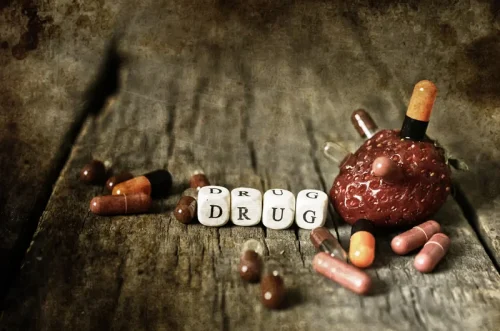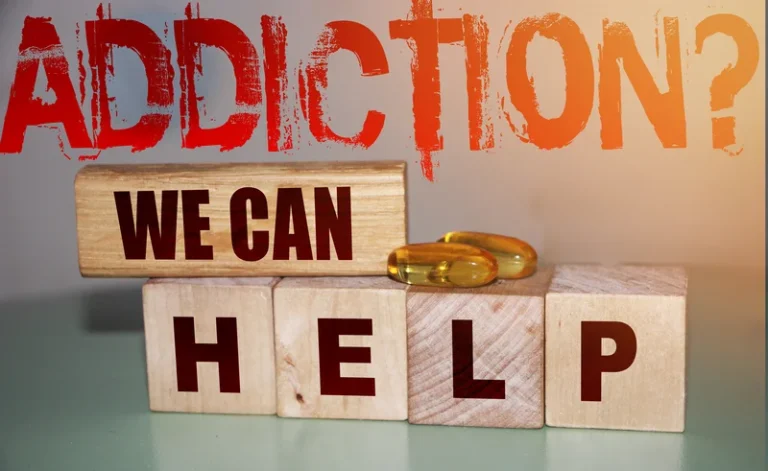
This research offers initial evidence that BEAN1 is linked to unfavorable prognosis, immune escape, and resistance to chemotherapy in READ. BEAN1 appears to be a promising new biomarker and potential therapeutic target, warranting further investigation into its potential clinical applications in improving treatment outcomes for READ patients. Furthermore, stroke also shrinks immune organs including the spleen, and thus increases the risk of infection prevalence. You’ll also want to proceed with caution if you handle occasional flare-ups and autoimmune disease-related pain with over-the-counter pain relievers. Consuming alcohol alongside anti-inflammatories can increase the risk of bleeding in your gastrointestinal tract. While I want to encourage people to live their lives despite their autoimmune disease, some medications have dire side effects when mixed with alcohol.
Alcohol distracts the body from other functions
The antibodies can recognize and interact with antigens, and each B-cell produces antibodies that recognize only one specific antigen. These antibodies then will bind to any matching antigen molecules they encounter in the blood or on other cells, thereby marking them for destruction. Some B-cells, however, become memory cells that will remain dormant in the body for years and can be activated rapidly if a second infection with the same pathogen occurs. The activities of T-cells and B-cells are intricately intertwined through the actions of various cytokines to orchestrate an effective immune response to any pathogen the organism may encounter. Although most research has focused on the effects of heavy alcohol consumption on the immune system, several studies have also confirmed that even moderate consumption can have significant effects on the immune system. For example, one study found that women who consumed 330 mL of beer for 30 days exhibited a significant increase in leukocytes, mature CD3+ T-cells, neutrophils, and basophils.
Macrophages and Alcohol-Related Liver Inflammation
Acute and chronic alcohol abuse can interfere with the actions of these cells at various levels. Monocytes and macrophages are leukocytes with a single-lobed nucleus that also act as phagocytes and which therefore also are called mononuclear phagocytes. Monocytes are an immature form of these cells that circulate in the blood until they are alerted https://ecosoberhouse.com/ to the presence of a pathogen in a particular tissue. Once they are at the site of infection, they swell in size and develop into the mature defensive cells—the macrophages—that enter the tissues. After eliminating pathogens by phagocytosis, the monocytes exhibit pathogen-derived proteins and other molecules (i.e., antigens) on their surfaces.
Alcohol’s Burden on Immunity Following Burn, Hemorrhagic Shock, or Traumatic Brain Injury
Alcohol feeding suppresses the production and secretion of certain acute-phase proteins (i.e., type II cell surfactant). This effect may contribute to lung injury in response to inflammation (Holguin et al. 1998). Stopping alcohol use can significantly improve your health, boost your immune system and protect your body from serious infections and viruses. If you or a loved one needs help with alcohol addiction, Gateway Foundation can help. Gateway Foundation offers safe and effective treatment so you can get back to living a healthy life.
In addition to these changes in cytokine function, investigators also have shown a contribution of barrier dysfunction to the postinjury increase in infections in intoxicated people (Choudhry et al. 2004). Thus, alcohol intoxication can suppress chemokine production and impair the expression of proteins that allow neutrophils to adhere to other cells at the site of infection, which also contributes to increased susceptibility to infection. For example, in a model of lung infection, acute alcohol intoxication suppressed the production of certain chemokines (i.e., CINC and MIP-2) during infection and inflammation, thereby markedly impairing the recruitment of additional neutrophils to the site of infection (Boé et al. 2003). This defective neutrophil recruitment could be partially restored by localized chemokine administration (Quinton et al. 2005). The innate cellular response, which is mediated primarily by monocytes/macrophages and neutrophils, involves the recognition, phagocytosis, and destruction of pathogens—processes essential to subsequent adaptive responses.
- However, polyphenol-rich dry red wine and clear liquors mixed with soda waters or lower sugar swaps, like some green juices, are your friends.
- For example, following an infectious challenge, acute alcohol can suppress alveolar macrophage expression of IL-23, which helps activate naïve T-cells to differentiate into Th17 cells (Happel et al. 2006).
- Normal immune function hinges on bidirectional communication of immune cells with nonimmune cells at the local level, as well as crosstalk between the brain and the periphery.
- Following electrophoresis, transfer, and blocking, the PVDF membranes were incubated overnight at 4 °C with the appropriate primary antibodies, including anti-BEAN1 (#ABIN657309, Antibodies Online, Pottstown, USA) and anti-GAPDH (#2118, Cell Signaling Technology, Danvers, USA).
- 3The HIV (or SIV) set point is the stable viral load that is established in an HIV-infected person after the initial phase of the infection, when the person’s immune systems tries to fight the virus.
Health Categories to Explore
In addition, the magnitude of antibody response following vaccination with Hepatitis B is lower in alcoholics compared to controls (Nalpas, Thepot et al. 1993). Alcohol has a broad range of effects on the structural, cellular, and humoral components of the immune system. Numerous studies have demonstrated alcohol-related impairment of T-cell responses to various challenges. In other studies, chronic alcohol feeding impaired Th1 responses to a hepatitis C virus protein, does alcohol weaken your immune system a defect that was hypothesized to result from impaired secretion of IL-2 and GM–CSF by dendritic and T-cells (Geissler et al. 1997). This alcohol-induced defect in Th1 immunity correlates with suppression of IL-12 secretion by macrophages and dendritic cells (Waltenbaugh et al. 1998). Thus, it appears that alcohol inhibits Th1 immune responses and may predispose the organism to Th2 responses and that this shift is at least partly mediated by suppression of IL-12.
Share this article
To ensure the robustness of the findings, internal validation was conducted using bootstrap resampling (1000 iterations), and external validation was performed with independent datasets from the GEO database and XJCH-READ cohort. The BEAN1 gene, primarily studied in neurodegenerative diseases, has been scarcely studied in the context of cancers. Our research examines BEAN1 expression specifically in rectal adenocarcinoma (READ) and its association with prognosis, immune evasion, and chemotherapy resistance. Moderate drinking is defined as up to one drink per day for people assigned female at birthday and up to two drinks per day for people assigned male at birth, per the NIAAA. “Alcohol damages the ability of your immune system to fight viral infections. In fact, both the Surgeon General and the World Health Organization advise anyone at high risk for COVID-19 to avoid alcohol because it increases your risk for infection.” Alcohol also influences the functions of the lymphoid tissue and alter the activation, secretion, and functions of crucial immune cells called lymphocytes.

Alcohol and Bupropion: 4 Things to Know About This Risky Combination
While the immune system protects the brain, some immune responses have negative effects after a stroke. It is important to note that only some early research studies find a positive relationship between alcohol use and health. Dipak Sarkar, an expert on alcohol metabolism and immunity, and professor at Rutgers University, tells Inverse that he advises skipping alcohol altogether during the Covid-19 pandemic. This is because studies suggest that heavy drinking — defined as over 8 drinks per week for women and 15 per week for men — can disrupt key immune pathways, make people more susceptible to infection, and weaken the immune system.

Individualized, evidence based treatment, to fit your needs.

Alcohol also impacts the function of immune cells of the central nervous system (CNS), particularly astrocytes and microglia. Astrocytes are major glial cells that regulate neuronal function and CNS homeostasis. Their ability to serve as antigen presenting cells and produce cytokines in vivo has been controversial (Dong and Benveniste 2001). In vitro studies have shown that acetaldehyde modulates cytokine production by astrocytes in a dose-dependent manner (Sarc, Wraber et al. 2011). Specifically, 24 hours of exposure to both low (1mM) and high (5mM) concentrations of acetaldehyde stimulate IL-6 secretion, however, 7 days of exposure to the high concentration of acetaldehyde, significantly decrease IL-6 secretion (Sarc, Wraber et al. 2011). In contrast, both acute (24 hours) and prolonged (7 days) exposure to low and high concentrations of acetaldehyde reduce TNF-α secretion by primary rat astrocyte (Sarc, Wraber et al. 2011).

